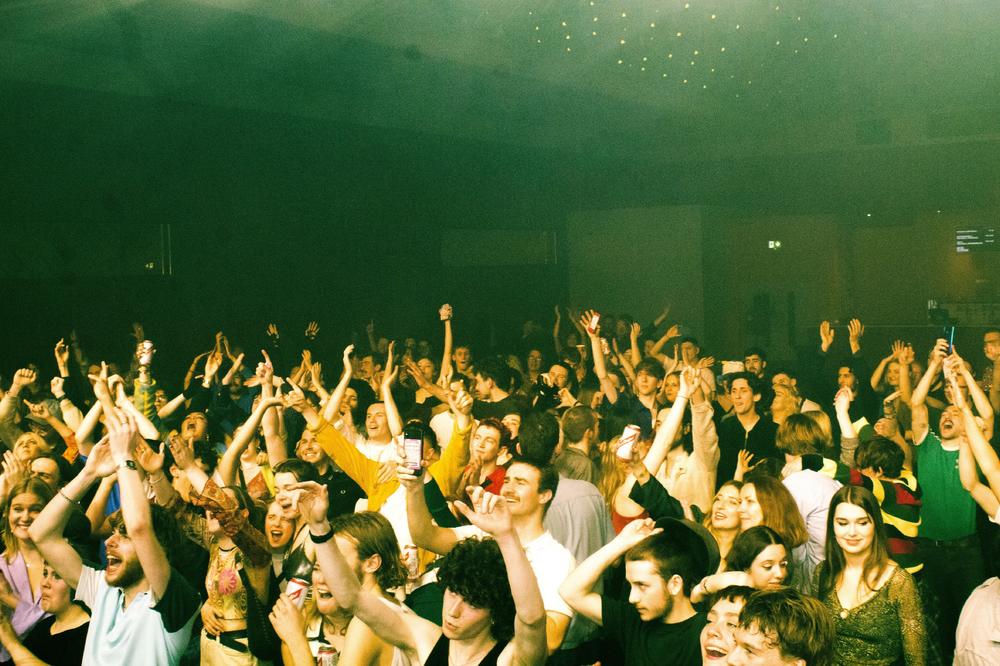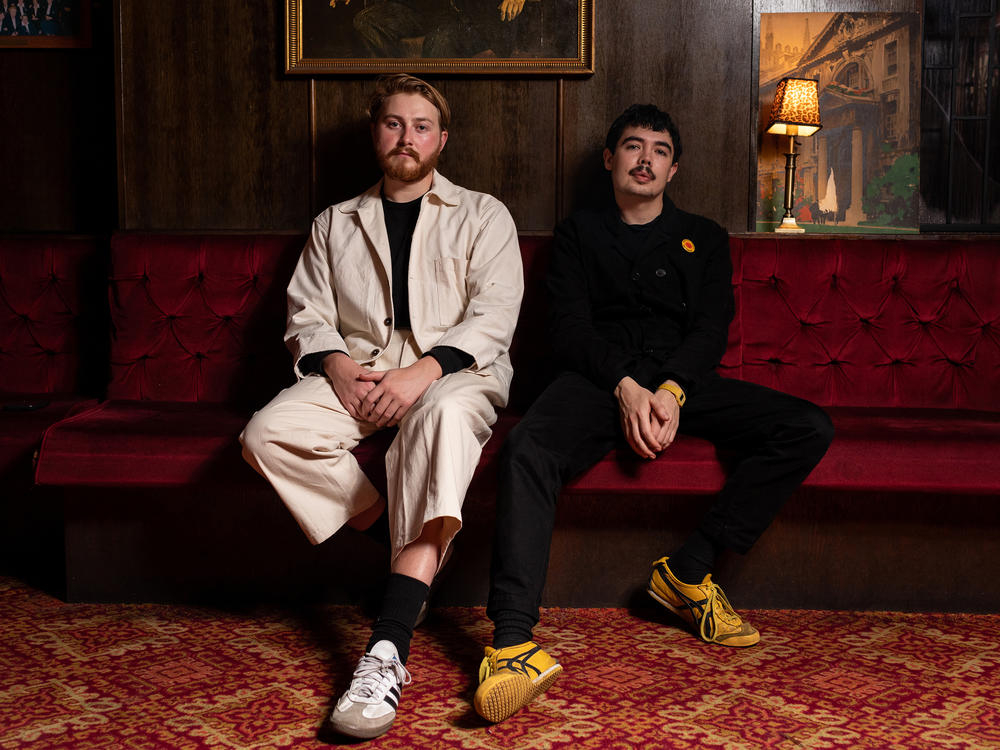Section Branding
Header Content
Northern Soul is thriving across the U.K. thanks to Gen Z looking to dance
Primary Content
LONDON - It's 1964. No, wait. It's 2023.
The music blasting through the speakers at this dark and sticky club in East London is 1964's "Tainted Love" by American artist Gloria Jones.
You may have never heard of Jones, but you have listened to Soft Cell's 1981 hit cover of the same song. If Aretha Franklin is the Queen of Soul, Jones is the Queen of Northern Soul. There's an important distinction here.
"Northern Soul is inherently up-tempo, Black American music that never really made it in America," says Lewis Henderson, who makes up one half of the Deptford Northern Soul Club (DNSC), the duo headlining this sold-out event at the Moth Club in Hackney.
"It's like B music," Henderson says, "but you know, like this kind of fast up-tempo music that people didn't want to listen to in their homes."
For more than seven years, Henderson and his musical partner Will Foot have brought this underground subgenre to venues across the United Kingdom, attracting a Gen Z audience looking to dance. But as packed and energetic as this dancefloor is, the story of Northern Soul hardly starts with this generation.
It dates back to the 1960s when most of these records were made at places like Motown in Detroit or Stax Records in Memphis, Tenn.
"If a song didn't make the cut of Motown or was scrapped, they would often press 500 demo copies to send out to test audiences," says 29-year-old Will Foot, the other half of DNSC.
He says those demos were destined to live in obscurity if it wasn't for an obsessive group of British music collectors.
"There's stories of DJs flying over to America and going to places like Miami and Chicago and Detroit and just going through warehouses of records that dealers were selling on and didn't really know what they have," Foot says. At which point, "they would bring them back and make them hits in the U.K."
Hits not just anywhere in the U.K; Northern Soul's success came from cities and clubs across northern England, where the music resonated with the region's working class, such as the legendary Northern Soul DJ Colin Curtis.
"In a nutshell, this was working-class people finding an exciting music form and finding clubs that were doing this," says 71-year-old Curtis, who still performs across the U.K.
Curtis says a London-based music journalist and record shop owner named Dave Godin coined the term "Northern Soul" in the late 60s after receiving a strew of visitors from the north coming into his shop looking for rare offbeat - and up-tempo — soul records.
The up-tempo made these records flourish in clubs across the north — songs that were rediscovered and recontextualized by a scene of young and energetic working-class people looking for a weekend escape from the drudge and drear of what was primarily industrial factory work.
Clubs like the Twisted Wheel in Manchester and the Golden Torch in Stoke-on-Trent quickly gained reputations for hosting Northern Soul all-nighters, with people coming in on buses from across the U.K. to dance for 24 hours straight.
"There's folk spinning, running up the walls, flipping over, landing in box splits," says Keb Darge, a famously mouthy Scottish taekwondo master turned dancer and DJ who quickly gained a reputation on these dance floors.
Darge's favorite venue was an old ballroom outside of Manchester called Wigan Casino, which in its heyday was welcoming sold-out crowds of over 2,000 people every weekend.
"There was no alcohol. There was no chatting to girls or dancing with girls," Darge says. "You were there to dance to the records ... and if Raquel Welch had walked up to me when I was dancing, do you fancy coming back to my hill? f*** off, Raquel. I'm dancing. Don't be stupid."
Then, there was the music itself. Dozens of American artists whose careers never took off at home were now the stars of Northern Soul — unbeknownst to many of them.
"Some of them didn't even remember they made a record," says Darge.
That was the case for Johnny Baker, whose 1973 single "Shy Guy" became a Northern Soul hit. Producers in the U.K. struggled to track him down to pay royalties. When they finally did find Baker, Darge says he was working at a gas station in New Jersey.
Rickey Calloway, a Florida-based artist who gained a reputation for his James Brown-like vocals, was working as a janitor in a school when he learned about his success on the other side of the pond. Calloway ended up relaunching his career in the UK and Europe.
Others, like Charles Simmons, never saw their success during their lifetime.
"He was a car mechanic and he died in a pauper's grave," says Lewis Henderson of DNSC.
Henderson credits the uplifting lyrics to Simmons' single "Save the World" for sending a message of coming together during difficult times.
"A lot of [Northern Soul] songs are sending this message of 'we got sick together and we can fight this, and we can build a better like world.'"
That message still resonates with people today, says Henderson, who believes the genre's more recent popularity with Gen Z comes at least in part from its convergence with movements like Black Lives Matter.
"When people listen to a record that was recorded in the 60s with the same message, it resonates now because they understand the context of it," says Henderson.
Others say they appreciate the movement's origins as something born out of counterculture.
"There's no sense of conformity," says 24-year-old Alex Standish. "Everyone turns up in crazy outfits and they dance like, in a way which is completely uninhibited."
Standish says he sees Northern Soul as an escape — and it feels very freeing to be a part of what some thought to be a temporary underground movement.
Copyright 2023 NPR. To see more, visit https://www.npr.org.




